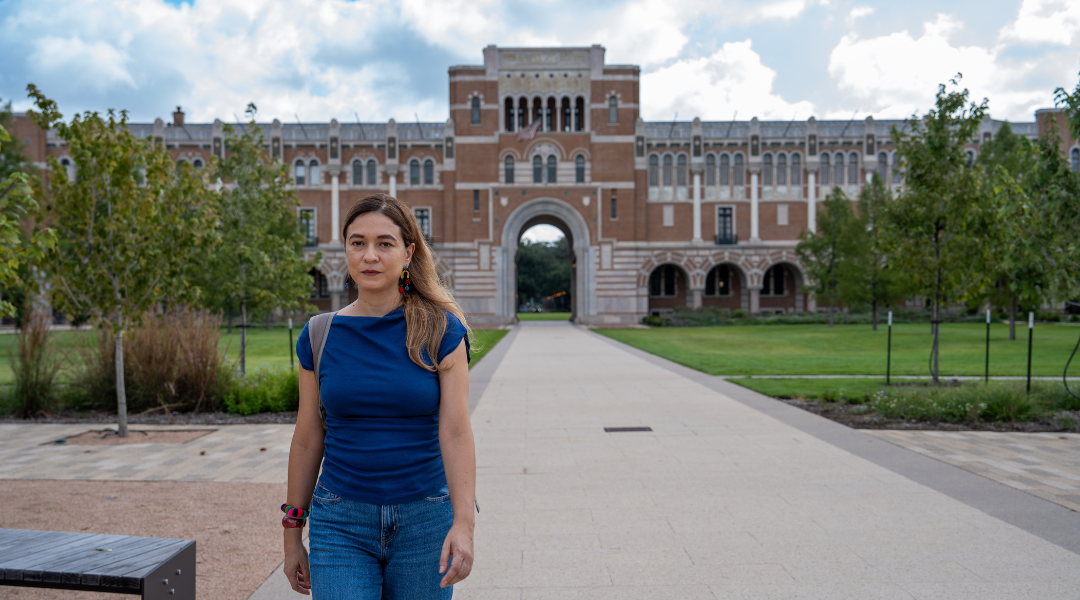When anthropologist Alejandra Osejo Varona looks at the hippos living in Colombia’s rivers, she doesn’t just see an invasive species; she sees an unfolding story about ecology, history, and identity.
Osejo Varona, a Ph.D. student in anthropology at Rice University, studies the complex social and environmental relationships surrounding the country’s so-called “cocaine hippos,” descendants of animals once owned by drug trafficker Pablo Escobar. After Escobar died in the 1990s, a small herd escaped his estate, Hacienda Nápoles, and has since multiplied into one of the world’s most unusual wildlife populations.
“These hippos are not just ecological actors; they’ve become cultural ones,” Osejo Varona said. “They represent how people in Colombia understand nature, history, and even justice. For many local communities, the hippos are part of their landscape now; strange, but familiar neighbors.”
Drawing on her background in environmental anthropology, science and technology studies, and critical cartography, Osejo Varona analyzes how scientific, governmental, and local narratives intersect in efforts to manage the growing hippo population. Her fieldwork explores how conservationists, policymakers, and residents frame the animals alternately as environmental threats, tourist attractions, or symbols of resilience.
Before beginning her doctoral studies at Rice, Osejo Varona worked at Colombia’s Instituto Humboldt, the national research institute advising environmental policy, where she led the Governance and Equity research line. Her work there focused on collective action around biodiversity and the social impacts of exclusionary conservation policies. She also taught at Universidad del Cauca, her alma mater, and collaborated on projects examining how Colombia’s armed conflict has shaped communities’ relationships with land and wildlife.
In 2021, Osejo Varona won a prestigious Fulbright Foreign Student Award, enabling her to travel to the United States to pursue graduate study at Rice and join the vibrant Fulbright community on campus.
Osejo Varona’s doctoral studies at Rice are supported by Minciencias, Colombia’s Ministry of Science, Technology, and Innovation, the Fulbright Commission–Colombia, the National Science Foundation and the Wenner-Gren Foundation. Additionally, her research has been funded by the Department of Anthropology, the Social Sciences Research Institute, the Office of Graduate & Postdoctoral Studies and the Center for Latin and Latinx Studies at Rice University. Her research aims to bridge anthropology, ecology, and environmental governance to illuminate how societies adapt to unexpected neighbors and how these encounters can reshape ecosystems and cultural identities.
“The hippos are a perfect example of how nature and politics are intertwined,” Osejo Varona said. “They challenge our categories, native and foreign, wild and domestic, welcome and unwanted, and force us to rethink what coexistence means.”

